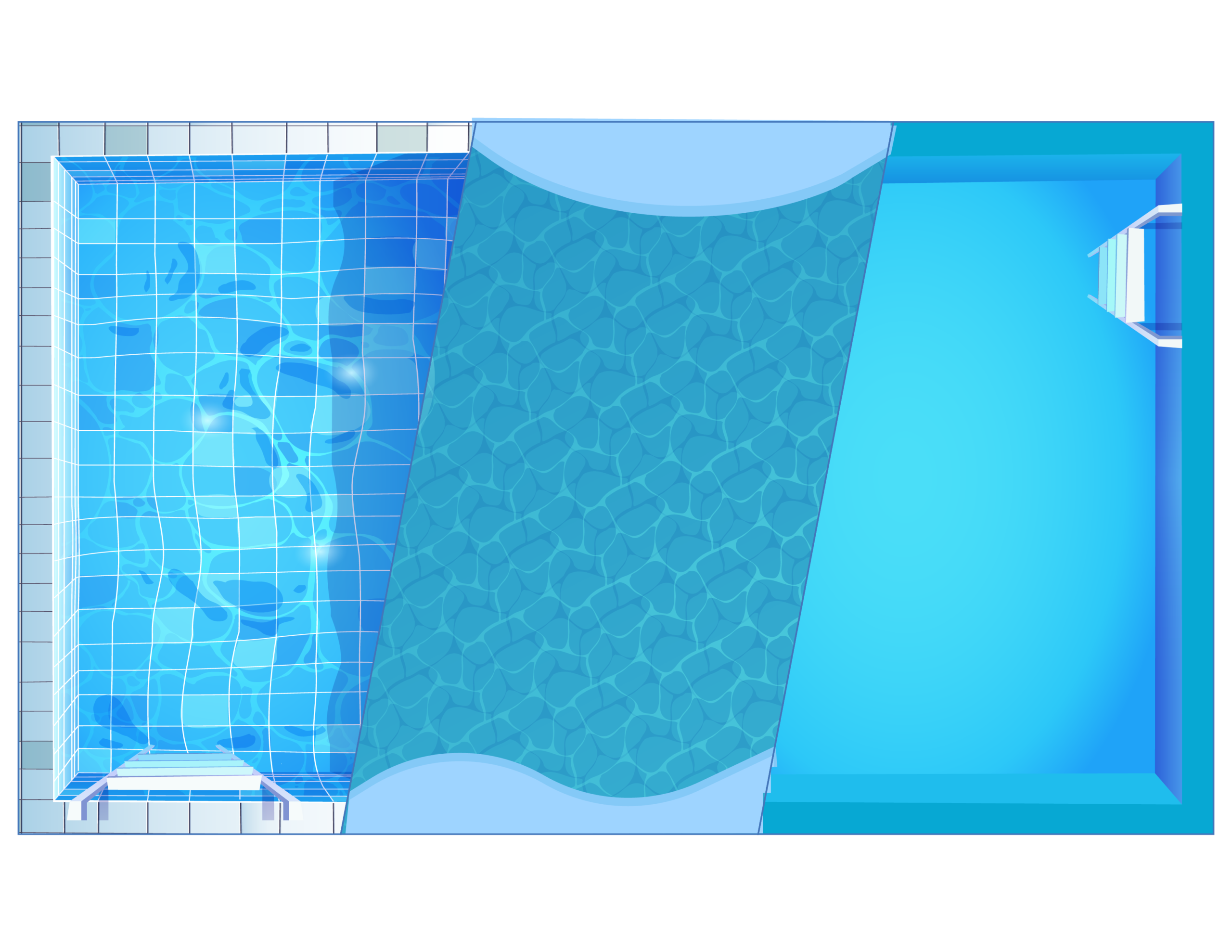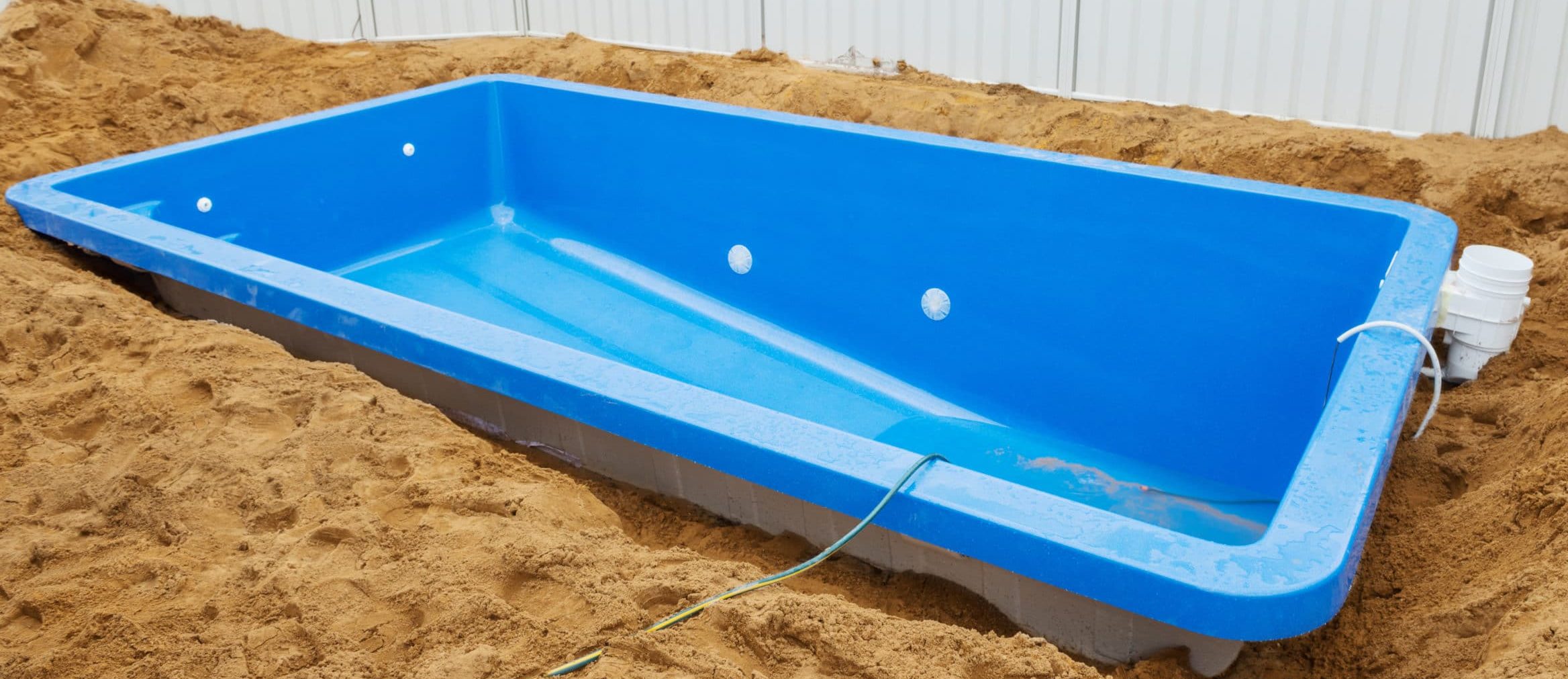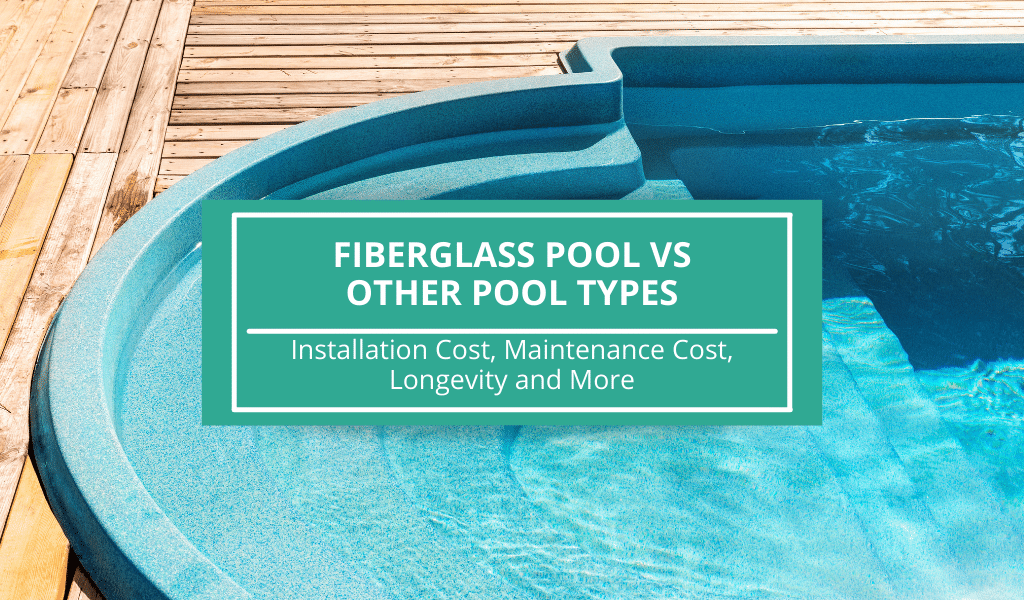Have you ever imagined swimming in a pool with low maintenance, easy installations and a longer lifespan? Well, enjoying these benefits will boil down to fiberglass pools. Why?
Fiberglass pools are made with sturdy, hardwearing, and durable pool materials that will require half the maintenance cost of regular pools. Apart from this, you enjoy a faster installation setting. While these benefits are superb, you may still wonder if this investment would be worth the money, and this is why a lot of people ask, “how long will a fiberglass pool last?”
Great question! Read on to know the life expectancy of your fiberglass pool.
Fiberglass Pool vs Other Pool Types
When considering pool installation in your home, the first thing you want to know is what pool type will best suite your needs and budget.

Vinyl Pools
Of all regular pools, the most affordable to set up is the Vinyl linear pools. However, this type of pool lacks durability, and requires regular maintenance, as the vinyl lining has a lifespan of ten years before needing replacement. Likewise, vinyl linear pools cost about $4000 for replacement, which is considered highly-priced in the pool market.
Concrete Pools
Now, let’s consider the concrete pool. When it comes to pricing, the cost of resurfacing concrete pools may be quite expensive for homeowners with restricted budget, and the pools usually requires frequent upkeep to keep help them last longer. What’s more, concrete pools are designed with porous materials. Hence, they will require high-quality chemicals to keep them free from algae and bacteria growth. So, unlike the vinyl pools, the concrete counterpart has a longer life expectancy of 15 years.
Fiberglass Pools
Fiberglass pools are one of the most cost-effective home relaxation equipment any home owner will want to own. But, despite its toughness, these pools require regular maintenance to keep them clean, healthy and long-lasting. While they do not require re-plastering or re-lining, they do need a gel coating replacement every 15 years.
Luckily, this process is incredibly low-priced compared to the upkeep cost for concrete and vinyl pools. And because of this, keeping a fiberglass pool for decades becomes quite easy.
Fiberglass vs Vinyl vs Concrete
Evidently, all pools need proper care. However, when compared to concrete and the vinyl linear pools, Fiberglass stands sting among its counterparts. A concreted pool will need professional aid for regular cleaning every five to ten years to keep it in top standard. On the other hand, maintaining a vinyl linear pools cost a fortune with about $11,000 as maintenance cost.
Using a fiberglass pool will guarantee low spending around $4,000 on chemicals and electricity. Besides this, this pool favors the Do-it-yourself maintenance route.
What Are Fiberglass Pools?
Fiberglass pools are also termed “one-piece swimming pools.” Why? They are prebuilt. Hence, saving you the time of setting up and would only require installation. Besides, the pool comes in varying sizes and shapes, from the rectangles and circles to those combined shapes with an inbuilt step and seating area.
While many people assume that this pool is designed purely with fiberglass, you want to know that this pool comprises of several materials that is fused to give it a robust and sturdy fiberglass shell, and serve as an additional support system.
Components of a Fiberglass Shell

Six layers make up the fiberglass shell including:
Where these six layers acts a functional role in keeping your pools strong, getting a fiberglass pool made with cheap materials does not give you that value-added benefit for your money. For this reason, it is necessary to get a pool with good quality.
Determining a Good Quality Fiberglass Pool
Determining a good quality pool can be really difficult because even the cheapest premade fiberglass pool may look exceptional. However, you want to make sure to get your pool from a reputable manufacturer and make sure that the installation is properly done.
Wonder why? Getting your pool from brand name manufactures will give the assurance that the fiberglass shell is designed with inspected high-quality materials. Besides, a quality pool will have a good installation that will limit the possibility of developing spider cracks in the future.
Another factor you want to consider is how well you care for your investment. The best quality pools may damage easily with little to no care.
How to Care for A Fiberglass Pool
Every pool can last longer than the estimated life expectancy. However, the lifespan of your fiberglass pool will depend greatly on how well you care for it. A regular upkeep will demand you test the chlorine level, calcium hardiness, the amount of cyanuric acid (CYA) in the pool, alkalinity of the water and the pH balance.
When it comes to a fiberglass pool, the good news is that while all these listed above are essential, they require lesser adjustments and testing. Hence, taking care of a fiberglass pool starts with maintaining a healthy chemical balance. To maintain good chemical balance, it is necessary to first observe the pH levels, which should be in the middle of the pH scale, and not more than seven. Neglecting to test this level leads to chemical imbalance, which can be hazardous.
keeping an evenly balanced chemical level and clean pool, will also demand that you run the pool filter. Fortunately, fiberglass pools require just one circulation daily.
Pro Tip: Maintaining your fiberglass pool is super easy. To do this,
When you buy a fiberglass pool made from high-grade materials and care of it properly, then, it the life expectancy may slightly increase and it will last longer than you imagined. However, your pools durability and lifespan will determine on the length of time spent on maintaining it. So, the question is, how much time will it really take you to care for your fiberglass pool?
How Much Time Do I Need to Care for My Pool?

Owning a pool means you have to make time for its upkeep while basking in the cozy feel of your home swimming pool. For vinyl and concrete swimming pools that have a non-porous exterior, which attract mold, mildew, algae, bacteria, and many other harmful pathogens in its spider cracks, maintenance may take longer. Why, these organisms make the swimming water unhealthy and damages the aesthetically appealing surface of the pool.
Conversely, fiberglass pools have a smooth surface texture that does not favour cracks and crevices. So, keeping the pool in good shape will take you three times lesser the time need to manage the concrete and vinyl pools.
So, How Long Do Fiberglass Pools Last?Fiberglass pools last longer than every other regular pool. How? Concrete pools are artistically pleasant to look at as they take different shapes and usually have a breath-taking appearance. But they are prone to one especially pesky drawback, cracks.
However, fiberglass pools are nearly immune to this crevice and are flexible. Cracks that do occur appear once in ten years, and are mostly obvious on the gel-coat surface layer. Luckily, these cracks are easy and cheap to revamp since the gel coat surface are made from non-porous layers, which offer protection from harmful chemicals.
Added to this, a fiberglass surface is stain resistant, does not support algae growth and have a low maintenance cost. With this, a fiberglass can last between twenty-five to thirty years depending on the manufacturing company and superiority of the product.
The Bottom Line
Although fiberglass pools are one of the costliest pool type to install, it's the least expensive to own and maintain. Fiberglass pools save you the cost of regular replastering and refinishing job. This is because it has a nonporous surface that does not soak up water, ensures less heat and also has a normal chemical balance.
Concrete and vinyl linear pools absorbs pool chemicals and water easily through the structural wall. This is because they have a porous exterior. Hence, they are susceptible to damage quickly and while you may likely not notice this on time, it is best to carryout regular maintenance.
Meanwhile, fiberglass pools are durable, consume lesser chemicals since the pool surface is hardwearing and sturdy. At the same time, they do not soak up the pool water. For this reason, fiberglass pools have a longer life expectancy rate of twenty-five to thirty years, unlike other pools. They also save stress of setting up and maintenance cost.
Frequently Asked Questions
Can a fiberglass pool crack in cold climate?
Regardless of the climate conditions, fiberglass pools are durable and hard-wearing. Why? Their design enables easy upward flow of water even when the water freezes during cold climate. When the water is able to expand upwardly without restrictions, it therefore means that the frozen water will easily maneuver it’s way inside the pool without pressing on the fiberglass shell leading to a crack.
Do fiberglass pools need refinishing?
Keeping your pool in mint condition can be hard work. For most people, it’s more or less a full-time job. If you own a fiberglass pool with about twenty years mark, then you may probably have to retouch the pools surface. However, you may need to get professional aid as a complete refinishing pool work may take more time and demand good expertise to look aesthetically appealing.
Notwithstanding this, fiberglass pools have a strong gel coat surface layer that can last longer than normal. So, if your pool is not up to ten years, you do not have to worry about refinishing or retouching its gel coat surface.
What should I consider when buying a fiberglass pool?
When purchasing your pool, the first thought on your mind may be to get an attractive looking pool that may suit your relaxation area. However, you also want to consider getting the best value for your money.
There are numerous factors you will need to consider when purchasing your fiberglass pools. Some of them include:

